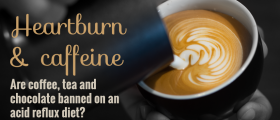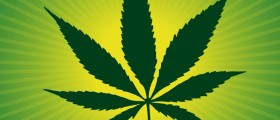
Caffeine is psychoactive substance that can be found in many products, including coffee, tea, chocolate, candy bars and different cocoa and soft drinks.
Most adults are used to drink coffee and this is the primary source of their daily caffeine intake. Arabica and Robusta are two most commonly used types of coffee and they could contain 71-120mg or even 131-220mg of caffeine in just one 150ml cup of coffee. According to the United States statistics, an average person consumes about 76mg per day. However, there are some people whose daily dose of caffeine is much bigger and it gets as high as 238mg and the usual source of all or at least 80% of caffeine is coffee alone.
Children mainly consume caffeine in the form of soft drinks or chocolate food and drinks, while only few of them use tea.How Much Caffeine Causes Unwanted Effects?
Caffeine can be useful if a person wants to stay awake but only in smaller doses. Studies of caffeine effects have proven that only low to moderate doses of caffeine may cause some positive effects on humans. Many people speculate how much coffee is actually low to moderate and scientists and doctors have somewhat agree that’s about one to 3 cups of coffee (standard coffee cup, about 150ml). This amount of coffee contains some 50 to 300mg of caffeine, depending on the type of coffee you are using. Moderate consumption of caffeine in most cases doesn’t cause any problems, which is not the case with higher daily doses. Keep in mind other sources of caffeine from the food and beverages, and make sure not to exceed this safe daily dose of caffeine.
Caffeine Effects on the Brain
Caffeine affects the human and animal central nervous system (the brain), causing effects dependent on the dose of this substance.
As mentioned before, low and moderate doses of caffeine are usually safe for most people. About 50 to 300mg of caffeine per day may positively affect the person, leading to increase of concentration, alertness and raising the energy level. Caffeine causes release of dopamine (neurotransmitter in the brain) in the prefrontal cortex, which is responsible for positive effects of lower caffeine doses.
Some people may be tolerant to some extent to effects caffeine causes, but their complete tolerance has not been recorded.
Higher doses of caffeine are known to cause negative effects on people, especially on those sensitive to this substance. Many of these people experienced restlessness, tachycardia, anxiety or even insomnia after drinking too much caffeine. Explanation for these effects lies in the non-specific stimulation of the structures in the brain by high concentrations of caffeine. Extrapyramidal motor system and the structure responsible for the sleep-wake cycle are the most sensitive and this is why people experience restlessness, anxiety and sleeping problems.

















Your thoughts on this
Loading...